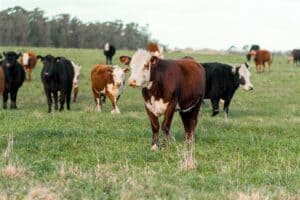Evaluating the Risk Reducing Benefits of Resilient Agriculture Practices
6 February 2024
Today, Meridian project partner, Croatan Institute, has published the report “Finance for Resilience: An Overview of Risk Mitigation in Agricultural Systems for Farms, Lenders, and Governments”. Croatan led the effort to create the report with support from Meridian team members.
The report examines the ways in which implementing resilient agricultural practices can reduce financial, environmental, and social risk within agricultural systems. It is a broad study of academic literature, interviews, and curated focus group discussions with experts in the sustainable agriculture field. It also looks at three levels of risk: on-farm, off-farm, and systemic.
The paper goes beyond typical environmental benefits to include social and financial risk reduction benefits as well. From a business standpoint, reducing financial risk is vital for farmers as they need to be profitable to maintain their farm. Additionally, farms do not exist in a vacuum; they are part of their communities. Therefore, there are social risks as well – what happens on the farm can impact the entire food system and even society.
The analysis showed that there is evidence that points to resilient agriculture practices reducing social, environmental, and financial risk. The authors recommend further research is conducted to track long-term resilience benefits across risk types to encourage scaled investments. They also suggest policy and financial decision-makers create broader risk frameworks that incorporate multiple dimensions.
Regenerative agriculture has emerged as an increasingly important topic in the food systems space in the last five years, but it carries controversy and complexity. As a result, it has seen both increased investment and claims of benefits that are not fully tested. Providing a body of work that contributes to quantifying the benefits of regenerative agriculture helps work through some of the complexity and controversy.
Distilling both data and experience, “Finance for Resilience” offers a substantial contribution to this ongoing discussion.